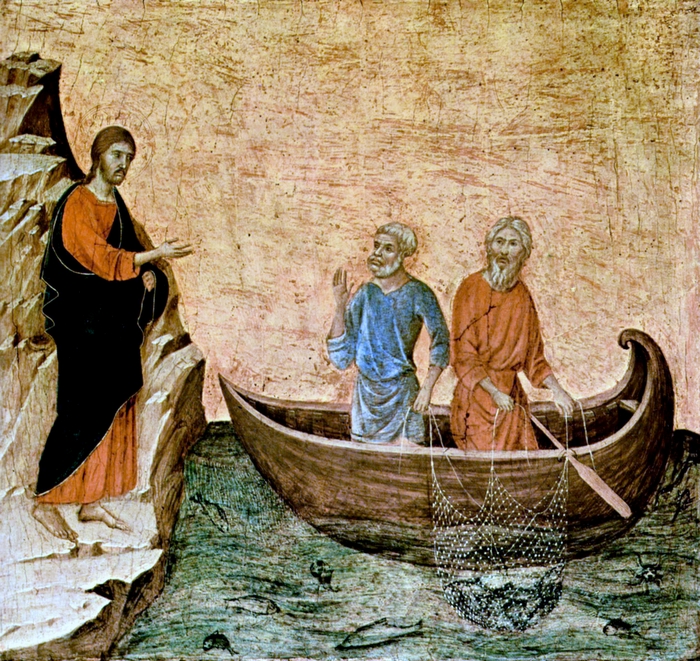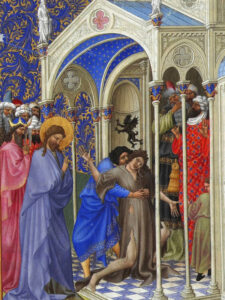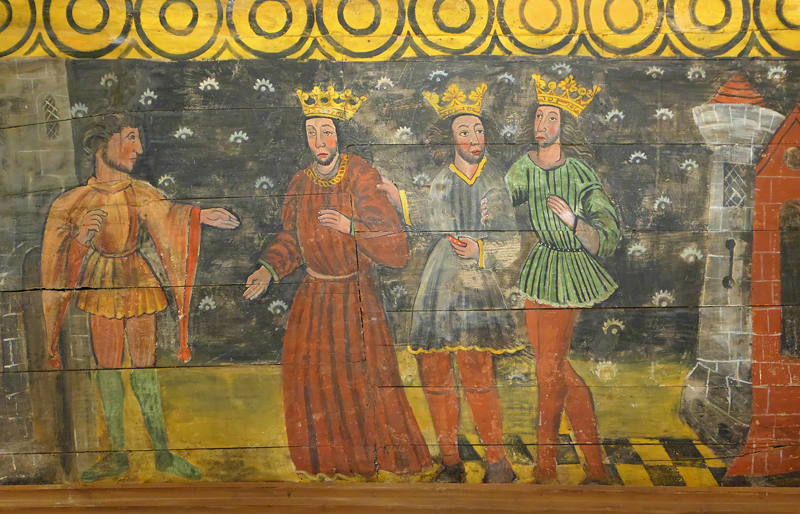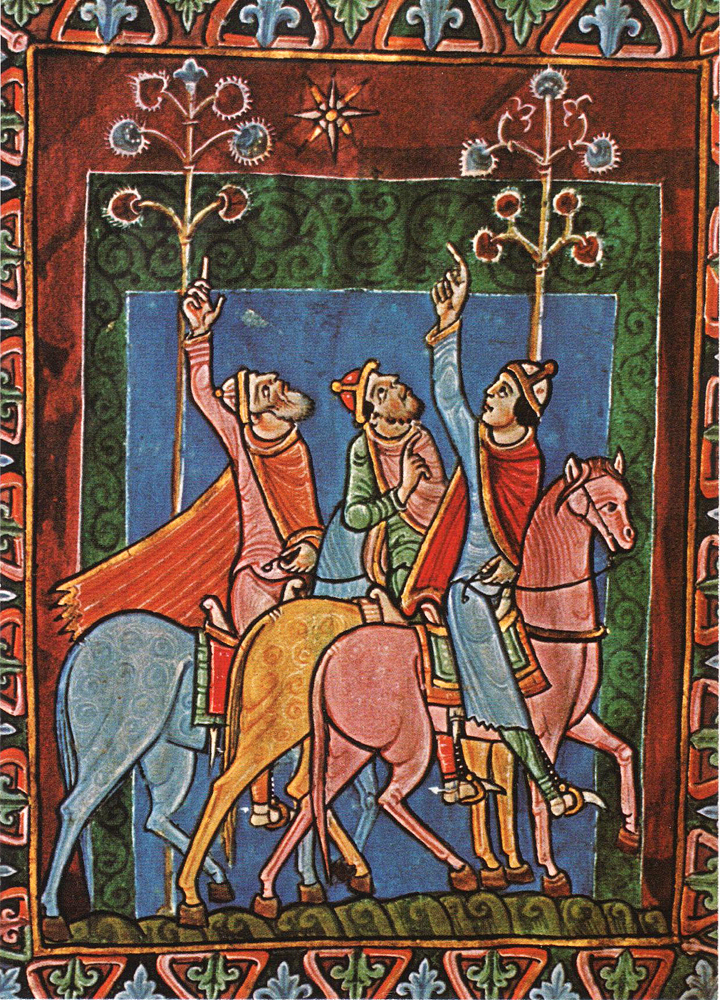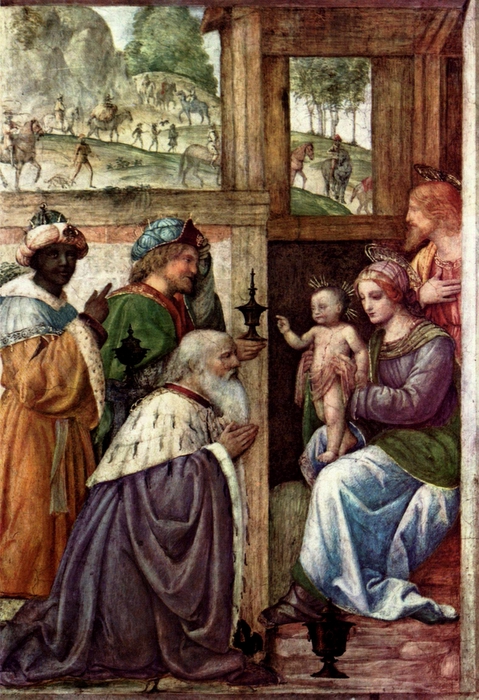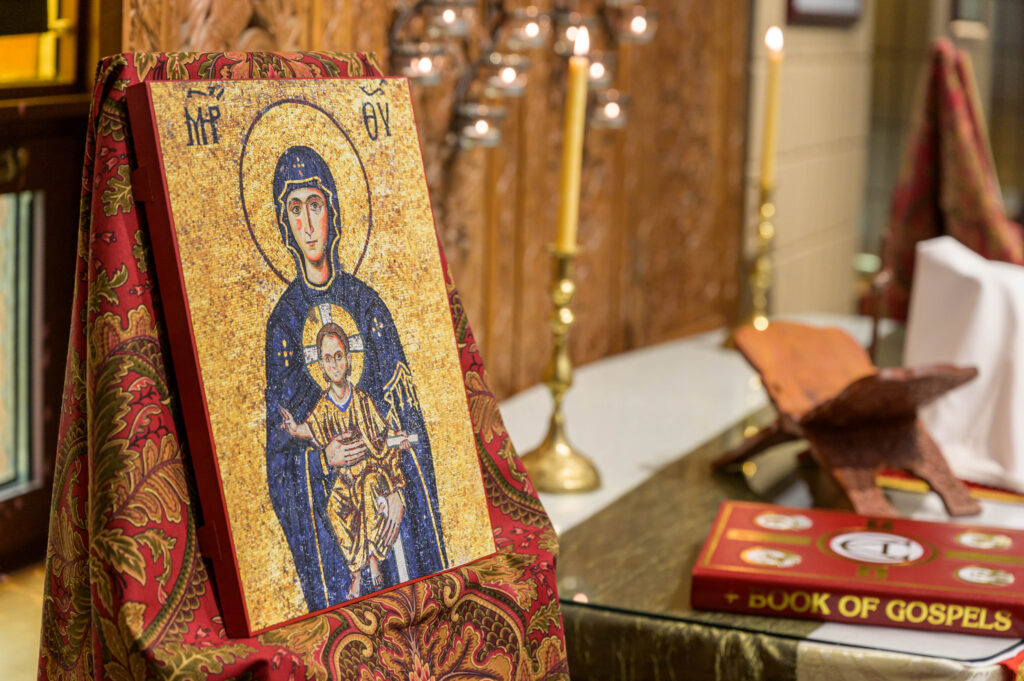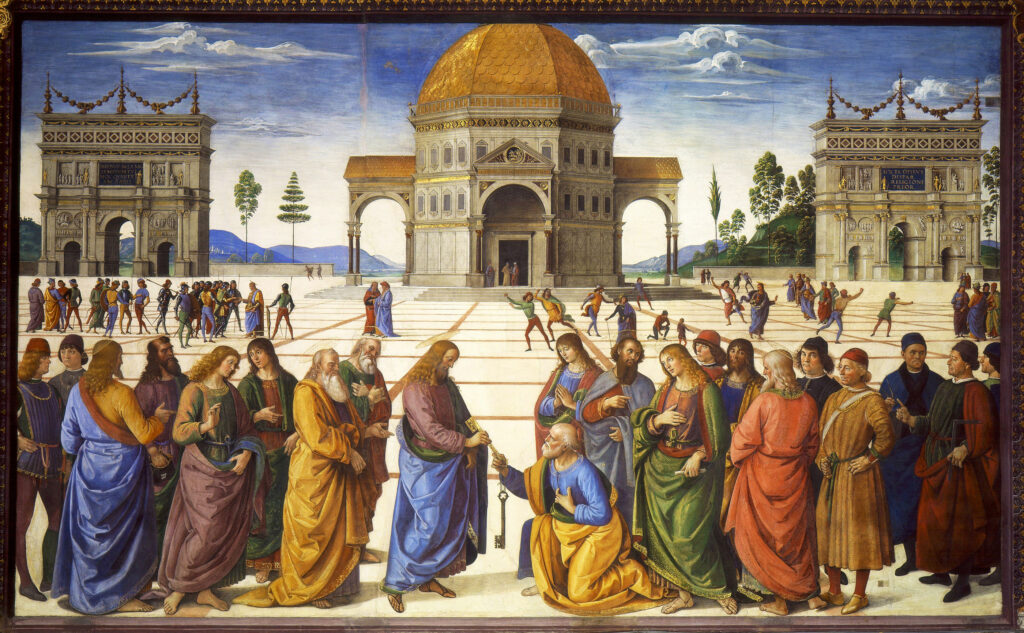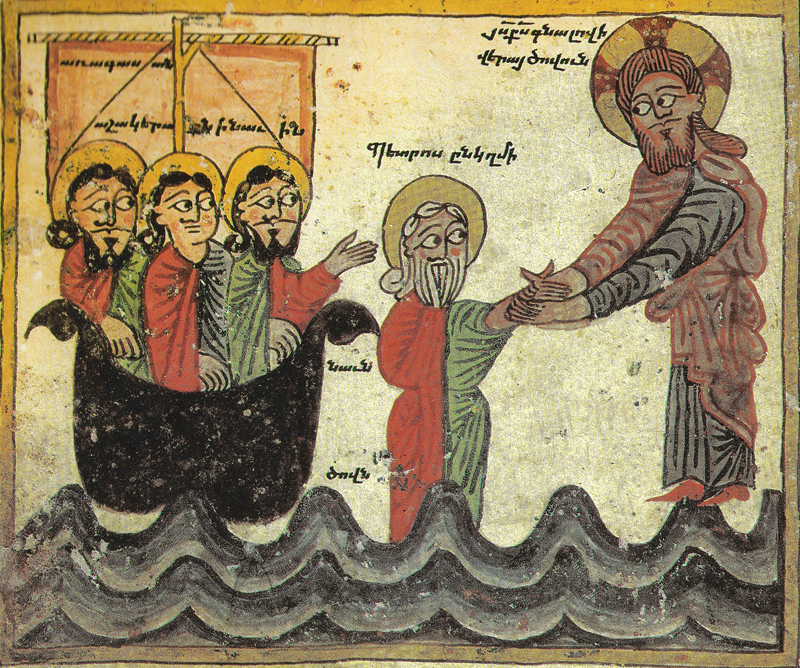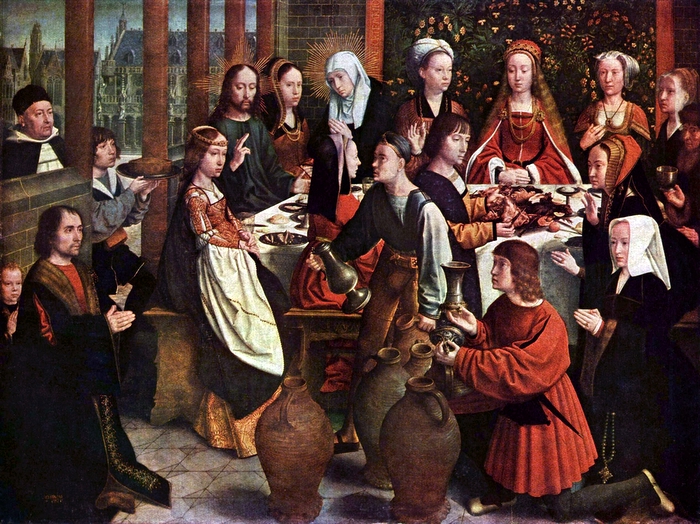
Barekmor
Glory be to the Father, to the Son, and to the Holy Spirit
Lent
We have entered a new season of the Church this morning – the season of Lent in which we prepare for Easter. Lent will last forty days until March 26th and will be followed by the fasting periods of Lazarus Saturday and Holy Week. This period of forty days was already part of Church practise during the time of St. Irenaeus who lived in the second century.
During this time, we are to look to our lives and examine what needs to be repented of in preparation for Holy Week and Easter. We also take this time to spend more time in prayer and use the money that we save in giving alms.
The Miracle of the Wine in Cana
We begin Lent by looking at the wedding in Cana. It happened on the third day. This third day the fathers take with great significance. First of all, three speaks of the Trinity and it was also on the third day that Christ was raised from the dead and His spouse the Church was created.
This miracle being the first is significant in its placement as Eusebius of Caesarea points out that in the Greek version of Isaiah 9 the prophecy reads,
Drink this first. Act quickly, land of Zebulon and Naphtali, Galilee of the Gentiles.” And the miracle was a sign of the mystic wine – that wine of faith of the new covenant that is transformed from bodily joy to a joy of mind and spirit.
Prophecy Fulfilled
First, the water is turned into wine and then His ministry begins. He went to the wedding to give wine and not to drink it. His ministry from the beginning was for others. If we look back a little into the previous chapter, we see that Christ has been declared the Lamb of God by St. John the forerunner and has received His first disciples.
So then, we see the establishment of who Christ is followed by the fulfillment of prophecy. In the orchestration of this miracle, we see also an example of the ministry of the Theotokos. She intercedes with Christ for this family because they have run out of wine. Whether this family asked her, or she did it on her own, it shows that the Theotokos cares enough for our needs to ask her Son. Therefore, we should be bold in asking her to pray for us.
Ministry of the Theotokos
In the first miracle, the ministry of the Theotokos is integral in it being accomplished. We see honour being given to her in the beginning of Christ’s ministry. In fact the term that some of the fathers use in this situation is that Christ venerated Mary in His giving honour to her in this miracle.
Jesus responds to His mother’s request with the words, “Woman, what does your concern have to do with Me? My hour is not yet come.” In the narrative the fathers point out that the Theotokos is referred to as mother, but in Jesus’ response He calls her woman. Why is this?
The term mother points to Jesus’ humanity. We call her Theotokos or Mother of God because we are recognising that through the Virgin Mary, God took on humanity. His use of the word woman reminds us that He is the creator both of Mary and of all things. It is as the Son of God rather than as the Son of Man that He is able to work this miracle.
God took on our humanity, but His miracles of healing, multiplying food, walking on water etc. is a function of His divinity. He is bringing the power of God into the physical world through his union with the flesh. These miracles show first of all His love for mankind and second that God has united with man.
He states that His hour has not yet come, but as we have read the passage this morning, we see that He does indeed accomplish it. Why does He say this and why does He change the water into wine afterwards? He says this because everything that God does is in a planned order.
Reasons for the Miracle
There are two reasons why he performs the miracle. First, to demonstrate to all who observed it that while He ordered all events, He was greater than that order. He was the creator of the order, so it was subject to Him rather than Him being subject to it. He had the freedom to adjust it.
Second, to show that the greatest honour is to be given to parents. He out of reverence for His mother, did what He had not yet willed to do. This miracle was a full transformation of water into wine as St. Hilary of Poitiers explains,
It was not a mixture, but a creation: the simple nature of water vanished, and the flavour of wine was produced; not that a weak dilution was obtained, by means of some strong infusion, but that which was, was annihilated; and that which was not, came to be.1
Others among the fathers point out that these vessels were used for water. There is no room left for trickery. It is like Elijah preparing the altar by pouring water on it. For there to be fire then and wine here, it had to be a miracle.
Spiritual Allegory of the Miracle
A physical miracle happened. However, there is much spiritual significance and allegory that the fathers see in this miracle. First, it brings men out of spiritual apathy, when they see the power of God and causes them to worship Him. Through this miracle the glory of God was manifested. I’ll explain how it was manifested in a little bit.
Second, these water pots were normal water pots, but in them water was turned into wine. In the same way the Theotokos was a normal human being, but in her womb the nature of the Son was transformed into humanity so that He is now fully God and fully man.
Third, the water pots gave birth to wine just once. This miracle only ever happened once. In the same way the Virgin conceived and gave birth to Emmanuel and did not give birth again.
Fourth, it points towards our Lord’s death and resurrection. He was placed in the tomb dead and came out of it alive.
Fifth, it is a picture of Christ pouring His teaching into the Jews during His ministry. Then after His resurrection, when He opened the eyes of His disciples to what was written in the law and prophets was the wine being poured out for all of the Church to enjoy. The Scriptures without Christ understood in them is tasteless like water, but when He is understood in them then it is as tasteful as wine.
Sixth, our weak and fickle wills are like water before they are transformed by the grace of God. Once we were driven and tossed by every doctrine, but now through having been changed by Christ, we have body and strength. Our will is no longer as St. John Chrysostom puts it washy. It is solid and able to lay hold of Christ.
Glory Manifested
At the end of this story, we read that Jesus manifested His glory and His disciples believed in Him. The fathers take a look at this and say, “Who saw His glory manifested?” Presumably, the feast had been drunk dry so probably most of the guests were not in a condition to notice this miracle. Further, it was only the servants and disciples who saw it take place and the ruler of the feast who noticed. St. John Chrysostom sums it up,
He manifested it at least for His own part, and if all present hear not of the miracle at the time, they would hear of it afterwards, for unto the present time it is celebrated, and has not been unnoticed. That all did not know it on the same day is clear from what follows, for after having said that He manifested forth His glory, the Evangelist adds,
And His disciples believed on Him.2
It is manifested or made known through the testimony of the disciples and the Church through the centuries. St. Cyril of Alexandria of this miracle says,
Many most excellent things were accomplished at once through the one first miracle. For honourable marriage was sanctified, the curse on women put away (for no more in sorrow shall they bring forth children, now Christ has blessed the very beginning of our birth), and the glory of our Saviour shone forth as the sun’s rays, and more than this, the disciples are confirmed in faith by the miracle.3
Divinity of Christ
What was it that the disciples believed? St. Maximus of Turin tells us that it was not what the disciples could see happening that caused them to believe but what could not be seen by physical eyes. This did not cause them to believe in the Virgin birth because that was something that they already knew.
Instead, this caused them to believe in the divinity of Jesus as the Son of God. This miracle proves that Christ is both the Son of Man (He has a mother) and that He is the Son of God (He can do wonders). St. Maximus concludes,
Let us believe not only that He shared our nature but also that He was consubstantial with the Father; for as a man He was present at the wedding, and as God He changed the water into wine. If such is our faith, the Lord will give us also to drink of the sobering wine of His grace.4
Application
Let us purpose to embrace this season of Lent by spending time in repentance, prayer, and looking for ways to give.
We ought to praise God that through this first miracle the prophecy of Isaiah was fulfilled.
As we saw in this passage, the Theotokos interceding for the family of the wedding, let us also ask her to pray for us. There is an Orthodox prayer that states, “The intercessions of a mother have great effect to win the favour of the master.” We saw the truth of that in this passage. This whole miracle took place because of her intercession.
To ask her to pray for you is quite simple. In the western tradition a request to her has been passed down, that you will often hear sung in Latin around Christmas, but the English words are:
Hail Mary, Full of Grace, The Lord is with thee. Blessed art thou among women, and blessed is the fruit of thy womb, Jesus. Holy Mary, Mother of God, pray for us sinners now, and at the hour of death. Glory Be to the Father, and to the Son, and to the Holy Spirit.
Also, as she is the mother of our Saviour, let us follow His example and venerate and honour her. My particular background was that anything to do with the Blessed Virgin Mary was looked upon with suspicion to the extent that her role was downplayed, however, let us follow the example of Jesus in honouring her. Let us follow the example of Elizabeth and bless her.
Finally, let us believe today as we confessed in the Nicene Creed that Christ is both the essence of God and Incarnate of the Virgin Mary. Finally, let us with the Church proclaim this first miracle that manifested the glory of Christ.
In the name of the Father, of the Son, and of the Holy Spirit
~ Fr. Matthew
Footnotes
David, Gérard, ca. 1460-1523. Miracle at Cana, from Art in the Christian Tradition, a project of the Vanderbilt Divinity Library, Nashville, TN.http://diglib.library.vanderbilt.edu/act-imagelink.pl?RC=46657 [retrieved May 2, 2019].
1 Joel C. Elowsky and Thomas C. Oden Editors, Ancient Christian Commentary on Scripture New Testament IVa (Downers Grove, IL: InterVarsity Press, 2006), ?
2 Joel C. Elowsky and Thomas C. Oden Editors, Ancient Christian Commentary on Scripture New Testament IVa (Downers Grove, IL: InterVarsity Press, 2006), ?
3 Joel C. Elowsky and Thomas C. Oden Editors, Ancient Christian Commentary on Scripture New Testament IVa (Downers Grove, IL: InterVarsity Press, 2006), ?
4 Joel C. Elowsky and Thomas C. Oden Editors, Ancient Christian Commentary on Scripture New Testament IVa (Downers Grove, IL: InterVarsity Press, 2006), ?


